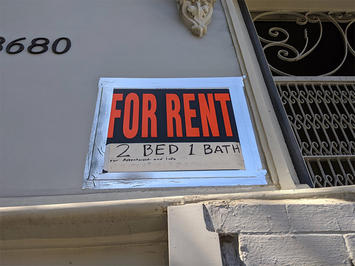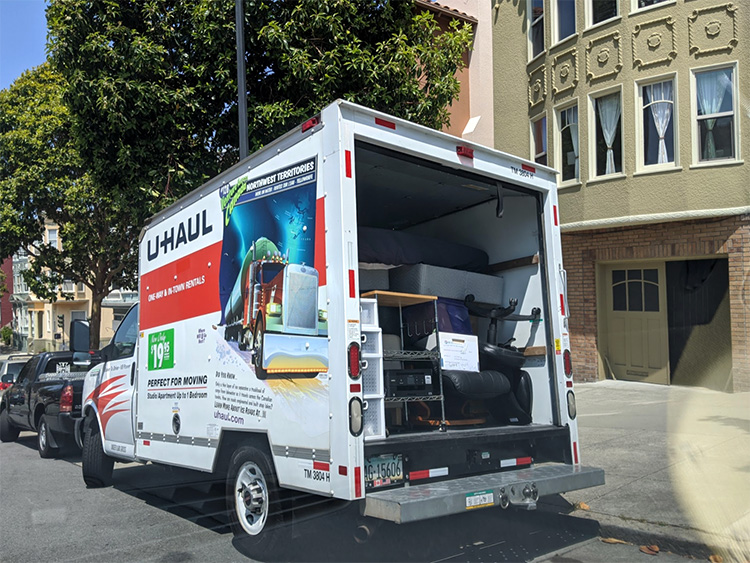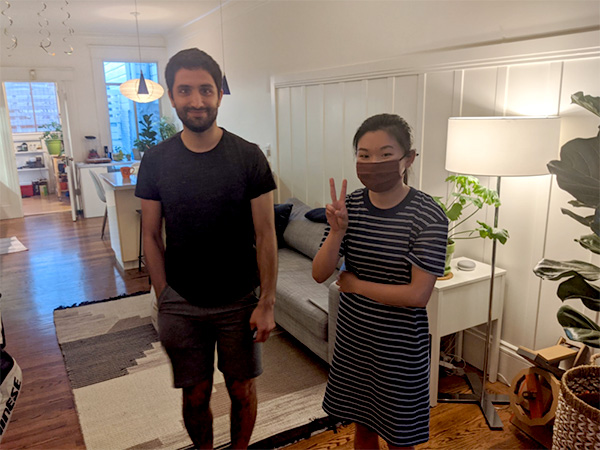
The Interwebs are abuzz over the mass exodus from cities triggered by the coronavirus. Cue up the images of Moses parting the sea for a caravan of U-Hauls destined for the verdant cul-de-sacs of the Promised Land. This outward population migration is quantifiable and real. You’ll get no arguments at all from me. But the nuances are being lost in the chatter.
Back in December of 2014 a friend who works for one of the big tech companies was wooing new recruits that had been flown in. She asked me to take a couple of recent grads around the city. One was from Florida and the other was from Texas. They were smart and charming and ready to begin their careers. I took them to the various tourist areas, we enjoyed a few meals together, I answered their questions, and then delivered them back to their luxurious accommodations courtesy of their corporate sponsor.
While we explored the city I listened to the conversations as they got to know each other. Which of their schools was more fun to attend? Are Florida girls prettier than Texas girls? There was the obligatory money talk concerning how much they might receive in stock options when the company goes public and what kind of house they would buy with the windfall. They agreed that a three car garage was a must. (Evidently a two car garage is just lame.) A swimming pool. At least five bedrooms since the kind of girls they would inevitably marry would insist on that much space. Et cetera.

These were not San Francisco people. They might drift in for a while, build up their careers, and make some easy money. But they were never going to remain for long. They were always destined for a suburban life elsewhere. And the stock talk reflected the reality that financialization had funneled wealth to flow to some individuals and locations selectively while many others were outsourced into the minimum wage gig economy and unemployment.
As this marginal demographic departs the city a void is being created and it’s providing wiggle room for people who genuinely want to be here. The city has needed this correction for years and there’s a collective sigh of relief that it’s finally arrived. It’s true that city dwellers can leave and continue to work from home in a distant suburb or rural retreat in another state. But it’s also true that people trapped in the ‘burbs against their desires are slightly more able to move in to the city.
When I encounter people moving house I like to ask where they’re heading. Some lost their service economy jobs and don’t expect them to ever come back. They aren’t leaving voluntarily. They just don’t see a future for themselves in a place that won’t recover for a very long time. They also don’t see comparable jobs waiting for them anyplace else. Others had their roommates leave and now paying the rent as an individual simply doesn’t pencil out. Most of these folks are returning to family or friends elsewhere against their wishes with no clear path forward beyond mom’s basement.
But there are also many examples of people who are finally able to upgrade and get a better quality space in a more desirable location within the city. Competition has evaporated and rents are coming down. Not all the U-Hauls are leaving town. For those who retain their incomes an opportunity has presented itself to upgrade at a discount.
A fascinating dynamic is unfolding next door. My neighbors are currently renting their one bedroom apartment for $4,300 a month. They contacted their landlady who lives out of state, explained the city wide economic situation, and asked for a rent reduction. She said no. They then contacted the owner of the soon-to-be vacant unit next to them and were welcomed into a nearly identical apartment for $3,300. Is that “cheap?” No. But it’s a $1,000 savings every month with no change to their living arrangements. They signed up and are sliding their furniture about twelve feet over to their new accommodations.

The couple who are vacating that apartment aren’t leaving the city. They’ve just bought themselves a proper house with a back garden a few blocks away. Their moving van isn’t going far at all. They’re excited about their new digs and have already dubbed their new home The Oasis.
This morning I got a call from a friend who lives in a rural area three hours away. He and his girlfriend have been saving up for a house for a few years. There are no truly affordable places in California anymore, but they had hopes of finding a modest fixer upper within their stretched budget. In the last five months an army of city people have moved in and driven up the cost of property in a panic. Crappy homes are now selling with multiple all-cash offers for $100,000 above the asking price. COVID-19 has brought many sad situations with a lot of loss. But it’s also creating new winners. This is the Great Reshuffling.
This piece previously appeared in Strong Towns.
Johnny Sanphillippo is an amateur architecture buff with a passionate interest in where and how we all live and occupy the landscape, from small rural towns to skyscrapers and everything in between. He travels often, conducts interviews with people of interest, and gathers photos and video of places worth talking about (which he often shares on Strong Towns). Johnny writes for Strong Towns, and his blog, Granola Shotgun.












